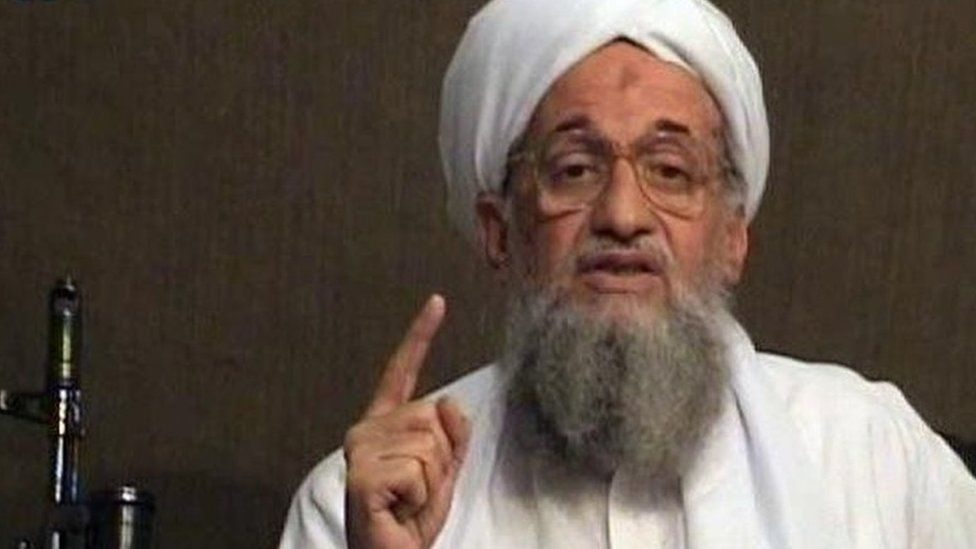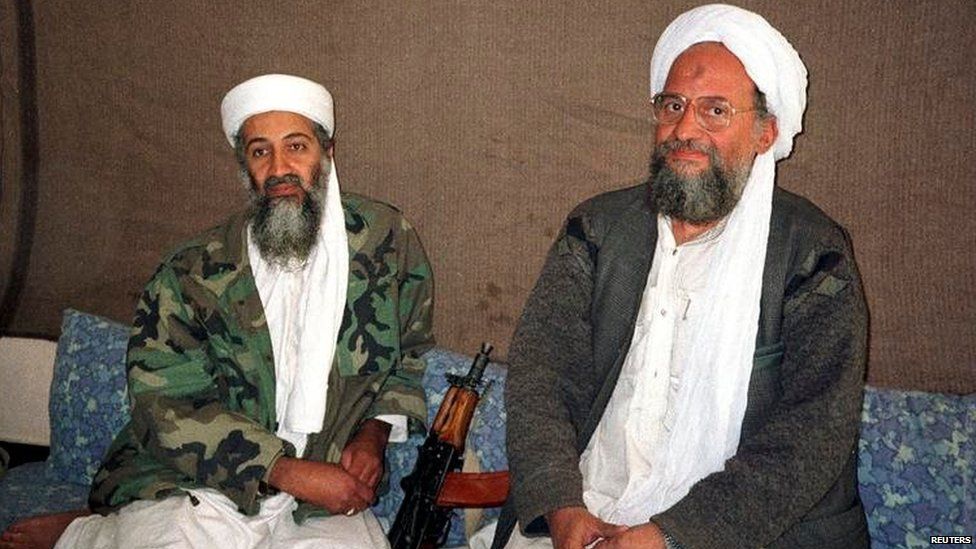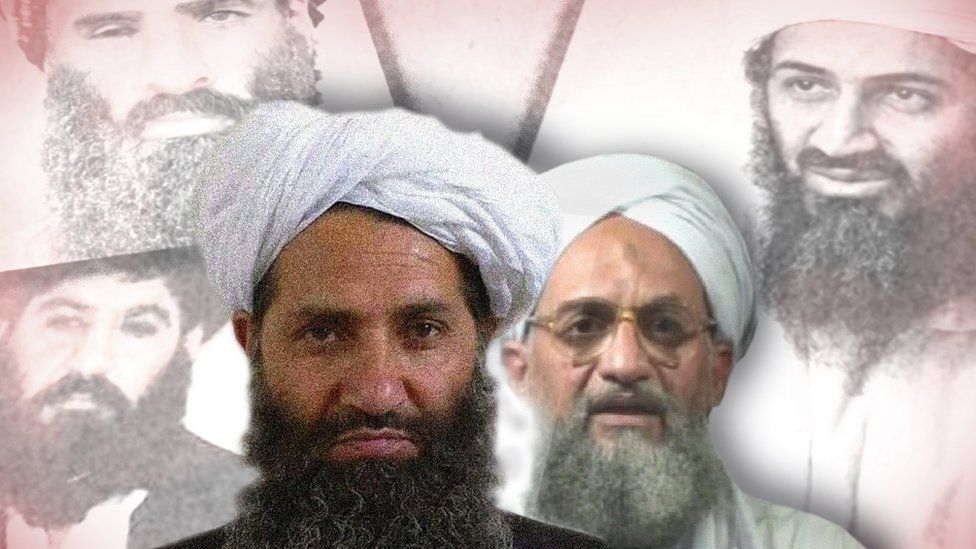 AFP
AFPThe US has killed the leader of al-Qaeda, Ayman al-Zawahiri, in a counter-terrorism operation in Afghanistan, President Joe Biden has confirmed.
He was killed in a drone strike carried out by the CIA in the Afghan capital, Kabul, on Sunday.
Mr Biden said Zawahiri had “carved a trail of murder and violence against American citizens”.
“Now justice has been delivered and this terrorist leader is no more,” he added.
Officials said Zawahiri was on the balcony of a safe house when the drone fired two missiles at him.
Other family members were present, but they were unharmed and only Zawahiri was killed, they added.
Zawahiri took over al-Qaeda after the death of Osama bin Laden in 2011. He and Bin Laden masterminded the 9/11 attacks on the United States together and he was one of the US’s “most wanted terrorists”.
A Taliban spokesman described the US operation as a clear violation of international principles.
“Such actions are a repetition of the failed experiences of the past 20 years and are against the interests of the United States of America, Afghanistan and the region,” the spokesman added.

Zawahiri, an eye surgeon who helped found the Egyptian Islamic Jihad militant group, took over the leadership of al-Qaeda following the killing by US forces of Bin Laden in May 2011.
Before that, Zawahiri was often referred to as Bin Laden’s right-hand man and the chief ideologue of al-Qaeda.
He is believed by some experts to have been the “operational brains” behind the 11 September 2001 attacks in the United States.


Ayman al-Zawahiri was the ideological brains behind al-Qaeda.
An Egyptian doctor who was imprisoned in the 1980s for involvement in militant Islam, he left the country after his release and became involved in violent international jihadist movements.
Eventually he settled in Afghanistan and joined forces with a rich Saudi, Osama Bin Laden. Together they declared war on the US and organised the 11 September 2001 attacks.
It took a decade for Bin Laden to be tracked down and killed by the US. After that, Zawahiri assumed leadership of al-Qaeda, but he became a remote and marginal figure, only occasionally issuing messages.
The US will herald his death as a victory, particularly after the chaotic withdrawal from Afghanistan last year, but Zawahiri held relatively little sway as new groups and movements such as Islamic State have become increasingly influential. A new al-Qaeda leader will no doubt emerge, but he will likely have even less influence than his predecessor.
His killing in Kabul also points to the continued importance of Afghanistan – there have been concerns that groups could find more room to operate now the Taliban are back in control and that it could return to becoming a safe haven. But the US has shown it can still strike from a distance, even if it no longer has boots on the ground.

-
-
13 August 2015

-
-
-
7 September 2021

-
